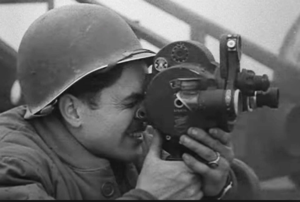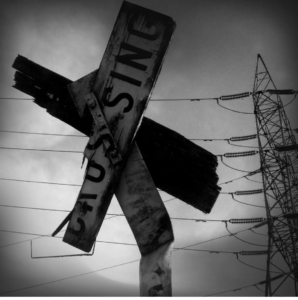We All Have To Start Somewhere…
Lewis Carroll wrote:
“If you don’t know where you are going, any road will get you there.”
My journey began innocently and a bit naively that day in San Francisco. The day I decided to buy that camera.
It was 1968, a time when the country was engulfed in anti-Vietnam War protests. Buddhist monks in Vietnam were self-immolating, students in Paris were demonstrating in the streets, and rock and roll was here to stay.
Having recently completed a stint in the Peace Corps in Latin America, I was stumbling along, searching for my place in the world. But progress was slow in finding that place. I was clear on this, however: the war was deeply wrong.
I must be cautious that my recollections from this era aren’t romanticized by time.
There was and still is a belief ingrained in me from somewhere – maybe the advertising industry – that getting my hands on the “right” technology might be somehow deliver me from lives confusions. Over the years, this has proven to be sort of true: a new lens offers a new way to “see.” And a new way to see can be magical for someone in a visual profession.
Somewhere along the way, the idea emerged that owning a real film camera might help me find my direction in the world. With it by my side, perhaps I could discover a sense of purpose. I held a naive belief that by documenting the events unfolding around me, I might also uncover something within myself.
I bought the used camera from a guy who lived up a third-story walk-up in the North Beach/Italian section San Francisco. It cost me $100.
Believing that the right camera might change everything
I don’t think I’ve ever been so excited about buying anything before or since. Well, except maybe for that used BMW motorcycle that I bought that time in Paris. The camera is solid metal, unlike today’s plastic constructions. It had heft. Someone told me that they used these cameras to make films during World War II and that you could drive over them with a tank and it would keep on keeping on rolling.

The camera had a slight hint of mildew about it and came with a well-worn reddish brown leather carrying case. I grew to love that smell. You’d wind the camera with a hand crank on its side and fold it down when you didn’t need it. You’d push a little silver start button, and it would run for about 30 seconds until the spring unwound. You could even change the speed of the shutter from 8 to any speed up to 64 frames per second by rotating a simple wheel on the side.
I had an instinct about that camera. I fell in love with that camera. It fit snugly inside its carrying case and symbolized an amazing potential for making films, telling stories, becoming someone. Buying it felt like an entrance fee granting me access to the world of filmmakers.
Little did I know that this small step would lead to a long journey, evolving into a career that would take me around the globe. That single purchase changed how I saw myself and altered the course of my life..
How could I know then that it was the first small step on a long journey to come that would turn into a career and take me all over the world? It never occurred to me that there might really be a lifetime of consequences that would ripple before me from that one purchase. It changed the way I saw myself and it altered the direction my life would take.
Okay. Now what?
Returning home that evening, I placed the camera on my dining room table and stared at it. I couldn’t wait to start—but where? I had no clue. First things first: learn how to load film into the bloody thing!
I called a friend who told me how to use a light meter to expose the film properly.
That next day, I tested out the camera by getting a shot of my girlfriend running along the railroad tracks with our dog Jake. I remember the sound of the camera as it pulled the film down and the shutter opened to expose an image twenty-four times in a second. Click. Click. Click. Click. Click.
But now I had to go to the lab in San Francisco and wait a few days until they had developed the film. I considered camping out in front of the lab.
When it was finally ready, I unspooled the first few feet of film while still in the lobby of the lab amid the wonderful fragrance of lab chemicals. And like magic, there it was: the image just as I had hoped it would be.
I hurried home, loaded it onto my projector, and watched with Judy and Jake as their running towards me wavered a bit on the small folds of the white sheet I used as a screen. I’ve never seen anything quite so exhilarating or magical.

One of the first images I managed to shoot with my new camera.



Leave a Reply
Want to join the discussion?Feel free to contribute!